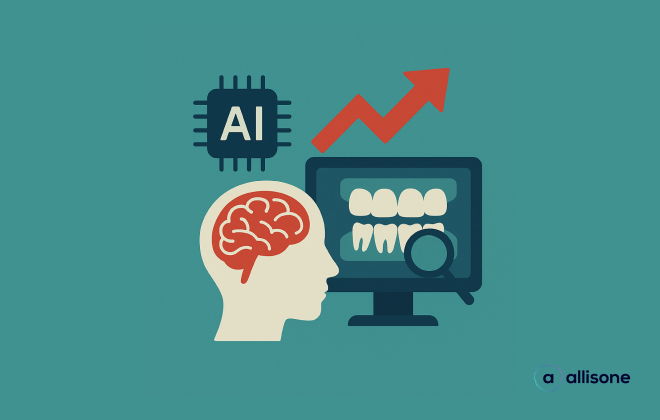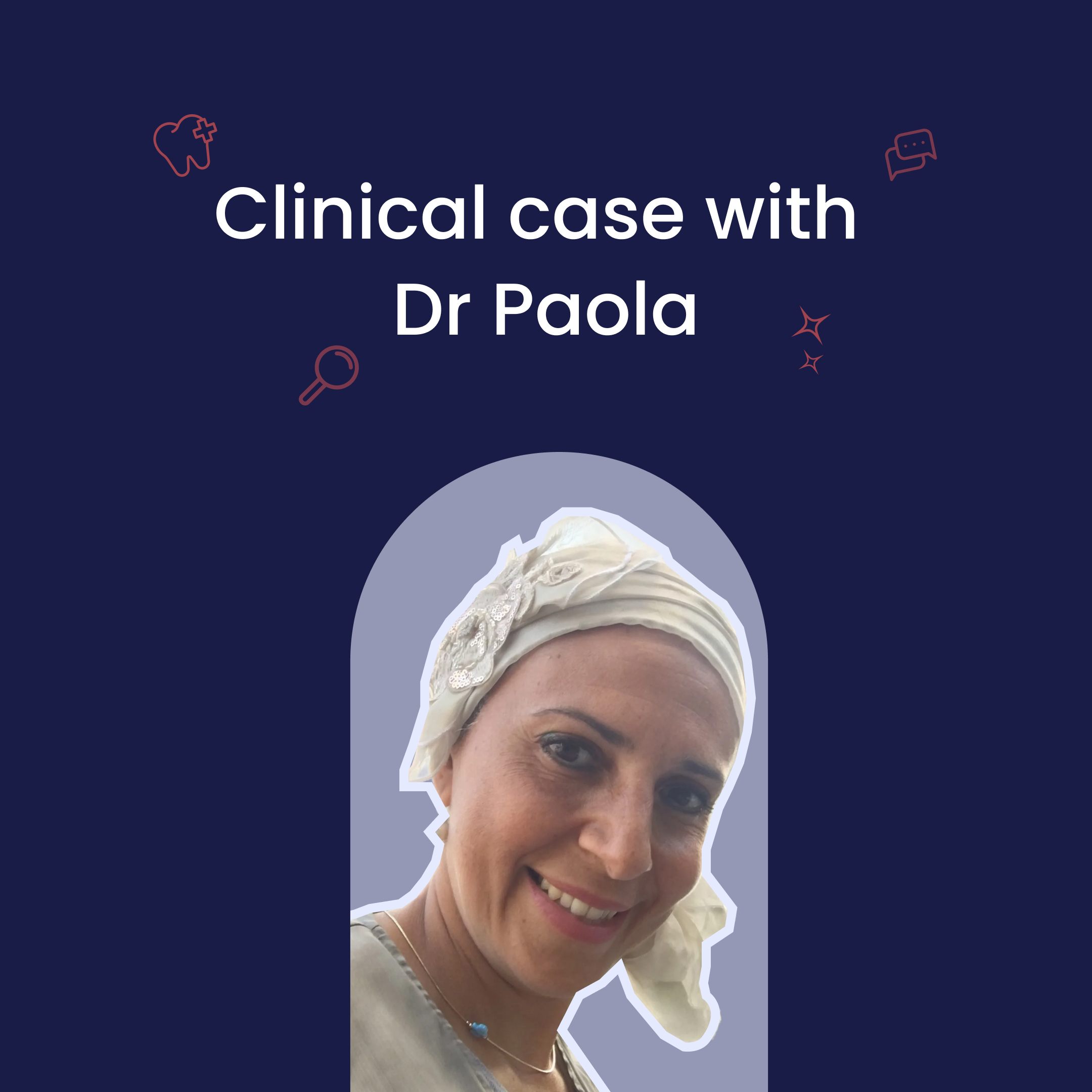
Faced with the constant challenges of access to care and changing public health needs, the dental sector in France is undergoing a significant transformation with the introduction of the Level 2 Dental Assistant (AD2) profession.
The aim of this new function is clear: to enrich the range of skills available within dental practices, to streamline patient care, optimize dentists' medical time and, ultimately, play an active part in improving access to care for all. Here, we take a closer look at this promising profession, exploring its foundations, its prospects for development and the challenges it represents for the dental profession and for patients.
What is a Level 2 Dental Assistant?
Law no. 2023-379 creating the Level 2 Dental Assistant was definitively adopted by the Senate and National Assembly on May 9 and 10.
Dental Assistant Level 2 (AD2) represents a significant evolution of the traditional dental assistant profession, now referred to as AD Level 1. Its creation is the result of a collective awareness of the need to adapt skills to the growing and diversified needs of modern dental practices. The AD2, as a new professional category, has been designed to meet a dual requirement: improving access to oral health care and optimizing patient care within the practice.
Unlike level 1 ADs, whose role is mainly to provide direct assistance to the dentist, help with practice management and prepare materials, AD2s benefit from specific training enabling them to perform more complex, technical procedures. This differentiation is based on a broader skills base, acquired through rigorous additional training.
The creation of this position is primarily intended to relieve the overloaded schedules of dental surgeons, by enabling them to delegate part of their care to competent, specially-trained professionals. This delegation should result in shorter waiting times for patients and an overall improvement in access to dental care. Secondly, it frees up medical time for dentists, enabling them to concentrate on more complex procedures. Finally, it offers a rewarding career path for dental assistants, contributing to the attractiveness of the profession and the retention of talent within practices.
The AD2 profession stands out for its significant contribution to oral health prevention. By enabling dental assistants to carry out acts of prevention and health education, this professional development is fully in line with modern dental care, where prevention plays a key role. This focus on prevention is crucial to reducing the incidence of dental pathologies and promoting optimal oral health among the population.
What skills and procedures are authorized?
The creation of the profession of dental assistant level 2 (AD2) marks a decisive step in the evolution of the dental profession. Thanks to specific additional training, AD2s have extended skills enabling them to carry out a range of procedures previously reserved for dental surgeons, under their direct supervision. The aim of this extension of skills is to strengthen the role of the dental assistant within the dental team, while improving the efficiency and quality of care offered to patients.
The AD2 could be entrusted with a number of technical and preventive care acts, including :
- Diagnostic imaging procedures, extending the traditional role of the dental assistant in patient follow-up and preparation.
- Contribution to prophylactic procedures such as scaling and the application of fluoride varnishes, which help prevent cavities and promote oral health.
- Involvement in basic orthodontic procedures and post-surgical care, enabling more in-depth follow-up of patients treated in the practice.
These procedures will be specified by decree of the Conseil d'Etat after consultation with the national dental and medical academies.
This AD2 status will be subject to prior completion of a training qualification, the terms and content of which will be laid down by decree, following discussions with the Ordre and other stakeholders. The aim of this training will be to equip AD2s with the knowledge they need to practice delegated acts safely and effectively.
Teaching content will cover a wide range of topics, from radiation protection to hygiene and sterilization techniques, as well as specific technical skills. Over and above technical skills, it will also aim to develop a global, patient-centered approach to care. This includes the ability to communicate effectively with patients and other members of the care team, as well as to manage the ethical and deontological aspects inherent in the practice of dental care.
The question of remuneration, crucial to the attractiveness of the profession, is under discussion, with the aim of bringing salaries into line with the level of qualification and increased responsibilities.
What are the challenges and prospects?
The process of integrating AD2 into dental practices has a somewhat vague timeframe, with the law still under construction in terms of both training and daily practice. With several implementing decrees already published and others pending, the profession is preparing for a gradual roll-out of these new skills, with the first AD2 training classes scheduled to start in 2026.
The advent of AD2s is likely to radically transform the internal organization of dental practices. Indeed, the integration of AD2s into dental teams is part of a strategy to optimize human resources: it contributes to a better distribution of tasks within dental teams, improved efficiency of care and, consequently, increased patient satisfaction. In particular, the law stipulates that the number of AD2s at any one location may not exceed the number of dentists or doctors practicing in the field of dental surgery. This is to avoid the creation of structures dedicated solely to procedures corresponding to the remit of AD2s.
This new dynamic fosters closer collaboration between dentists and AD2s, as the latter take charge of specific procedures, freeing up medical time for operations requiring in-depth expertise.
The move to AD2 status offers dental assistants motivating career prospects, enabling them to build on their experience and acquire new skills. This opportunity for professional development should contribute to the attractiveness of the profession and the retention of talent within dental practices.
The creation of the AD2 profession offers a number of advantages, starting with improved access to care for patients, and faster, more efficient treatment. For professionals, it opens the way to a diversification of skills and an enhancement of their career paths. However, it also brings challenges, particularly in terms of ongoing training and adapting practices to new regulatory frameworks. The success of this integration depends on the careful management of human resources and the ability of teams to evolve towards a more collaborative work organization.
The integration of the Level 2 Dental Assistant (AD2) profession into the French oral health landscape represents a major step forward for professionals and patients alike. Through this development, the dental sector is demonstrating its ability to adapt to the changing needs of the population, by offering more accessible, higher quality care. AD2s embody this desire to improve the efficiency of dental practices, while enriching the career paths of dental assistants with new skills and responsibilities.
This development also reflects a growing awareness of the importance of prevention and prompt treatment of oral ailments, which are crucial to overall health. By enabling dentists to concentrate on more complex cases and reducing waiting times for patients, AD2s play a central role in optimizing the dental care pathway.
In conclusion, the arrival of Level 2 Dental Assistants promises to significantly improve access to dental care in France.
Articles en lien
Lorem ipsum dolor sit amet, consectetur adipiscing elit.






